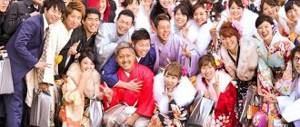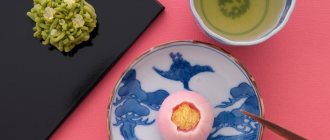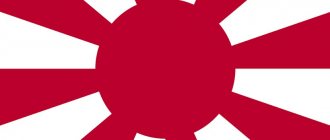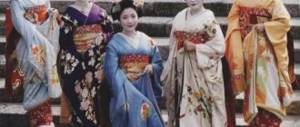Valentine's Day
Valentine's Day in many countries can conjure up images of red roses, romantic dinners and lovers routinely spoiling each other. But this doesn't happen in Japan, as it happens on December 24th, the most romantic day of the year for the Japanese.
In Japan, this holiday is even more than romance. Valentine's Day is the day of chocolate. At this time of year, Japanese chocolate companies produce at least half of their annual sales. Stores have already ditched their holiday decor as piles of sweet treats take center stage. Local tradition has it that women give chocolate to men, not just their boyfriends or husbands, but all men at work.
Valentine's Day became popular in Japan in the 1950s. The holiday appeared as a copy of Western traditions, gained a foothold thanks to marketers and the occupying American troops, and was intended primarily for young people. That same year, a campaign was launched to promote heart-shaped chocolates.
This brought about changes in Japanese cultural norms. At that time, a woman's "kokuhaku" ( kokuhaku is an act of declaration of feelings or love, followed by an offer to date) was considered radical, indecent and taboo.
How much do Japanese men and women pay on dates?
When the holiday began to be celebrated in post-war Japan, the act of giving chocolate became much more than just romance.
The girls used this day to give chocolate to the boy they liked as a “declaration of their feelings.” You can go out with someone a couple of times or go on a double date, but technically you won't date until someone does kokuhaku.
▼ You've probably seen this in many anime and films: the heroine with a pounding heart surprises her lover with a nervously handed box of homemade chocolate and a declaration of love.
But does this happen in real life? Almost never , according to a survey by Japanese recipe site Cookpad . Custom comes out of fashion.
By establishing a day when it was acceptable for girls to take risks and confess their feelings, chocolate makers and gift sellers not only found a great marketing opportunity , but also helped change the way men and women interact in Japan.
That's why White Day came into being. If the girl matches the boy's feelings, he will give chocolate in return on March 14th. Although this only happens to high school students or very young people. In fact, among adults, the most normal thing is that if a woman gives you chocolate on Valentine's Day, you will return the gift on White Day. This is also because the habit of returning gifts is very common in Japan.
Parade of children in costumes. Harajuku.
The Japanese National Confectionery Industry Association decided that they were not yet making enough profit, and in the late 1970s they launched White Day, a kind of return day when men should return the favor and buy a bunch of chocolates or other gifts for their loved ones and friends, colleagues. etc. White Day has since spread to other Asian countries such as South Korea, China and Taiwan. The name comes from the fact that men should be given white chocolate or gifts in white packaging. In 1977, a confectionery company even tried to make gift marshmallows, but it didn’t catch on.
Everything you need to know about Japanese New Year's cards "nengajo"
China - Valentine's Day
Instead of Valentine's Day, China celebrates Qixi, or Seventh Night Festival, on the seventh day of the seventh lunar month every year. The festival, often called "Valentine's Day", is dedicated to the memory of lovers Gina (the king's daughter) and Niulang (the poor shepherd).
They, in ancient Chinese folklore, fell in love, got married and had twins - but were only allowed to see each other once a year on Qixi.
Traditional Qixi celebrations include visiting the local temple to pray to Jina for wisdom, burning paper objects as offerings, and looking at the stars at night for symbolic constellations.
Valentine's Day
Japan is a culture where gifts carry a lot of meaning or social weight. For example, every time you go on a business trip, you should bring an omiyage or souvenir for your colleagues. This souvenir is usually some kind of food or drink associated with the place you visited. When someone starts a business, they usually receive flowers from friends and other companies. It's no surprise that Valentine's Day has become a social obligation, with different “types of chocolate.”
Boyfriends and husbands receive "Honmei-choco" (true feelings chocolate,本命チョコ), and all other men receive "giri choco" (obligatory chocolate,義理チョコ).
These days, women sometimes give out "tomo choco" (friend chocolate,友チョコ) to their girlfriends. So women eat chocolate too! It is usually quite ornate chocolate and on many occasions they will gather and enjoy it together.
Let's face it, we all love chocolate. Jibun-choco (自分チョコ) is chocolate that you buy and enjoy alone. Jibun literally means "I" in Japanese. For some women, this is the most important thing, and I understand that perfectly!











